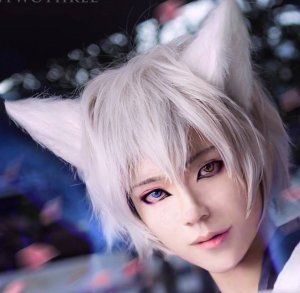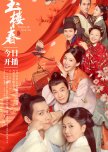A Satire of the Ming Dynasty Society
Watching this drama from a satirical perspective of the society during the Ming Dynasty, when Confucianism was practiced at its utmost height, decorum and protocols were strict, harsh and repressive especially for the women, makes it a very enjoyable watch for me. Seemingly unlikely, we get a couple of very strong female characters in particular a know-it-all Mary Sue who always saves the day. All the characters and their relationships have realistically captured life in that orthodox and conservative society, and that can even be relevant in today’s world.
This story takes a bold look into the Ming dynasty society, its orthodoxy and conservatism, its inequality, protocol, manners, expectations, and consequences, with the hidden criticisms that all these had led to the slow decline of the society and the ending of the dynasty.
Accordingly, the drama draws its inspirations from the great classical “Dream of the Red Chamber” with several of the characters deriving their names in a combination of words from the classic novel. The whole story revolves around the high status, wealthy and powerful Sun (pronounced Soon) family, narrated from the perspective of the youngest son, Sun Yulou (Wang Yizhe) who has a high powered father, a doting mother, three brothers and four sisters, each has a story to tell.
Like in the classical “Dream of the Red Chamber”, this story also hints at “truth becomes fiction when the fiction’s true; real becomes not-real where the unreal’s real” by the use of a puppet show in telling the story. Cleverly constructed, there are hints and cross-references to hidden (and obvious) meanings throughout. Truth and falsity, reality and illusion are constant displays.
Undoubtedly marriages by the order of the parents tend to be the most painful experiences for almost every couple even in a society where filial piety is held as the highest order of all. In the high society, statuses and face are always the forefront consideration of any marriages which are used to advance the careers of family members, usually at the expense of daughters, though some sons don’t fare too well either. The consequences are expected: extra marital affair, adultery, love triangle, elope, rebellion - all brilliantly captured in the story.
Sun Yulou rebels against his stern father and the social barriers of the time. He and Lin Shaochun (Bai Lu) pursue individual freedom, gender equality and to marry the partner of one’s choice. This couple has an initial sense of democracy, a rebellious spirit and courageous pursuit of love. Though well-read with traditional books of morals and ethics, Lin Shaochun toes the line from time to time. She convinces Sun Yulou to pass the Imperial exam so that he could become a government official and ask for her hand in marriage.
This is the first drama for Wang Yizhe as the main male lead. Many viewers don't feel he deserves such a role. For me, I would like to give him a chance without looking at him through tinted lenses. I feel his acting has brilliantly brought out the youthfulness of the character. He can look serious when he needs to, but in front of the family, especially his wife, he's just a big sunny boy that can be silly and Wang Yizhe delivers. Despite this being a main lead, it feels more like a supporting role because of how the character is being written, shot and edited.
Many viewers feel the main couple don't have the chemistry. Though they are both of the same age at 18, Lin Shaochun is more mature compared with Sun Yulou, and he always lets her have the final say. With that, it does feel that Sun Yulou a little brother who depends heavily on Lin Shaochun the big sister. For me, the lacking perhaps lies more on Bai Lu as she seems to be less enthusiastic and doesn’t share the same adoration and affection towards her supposedly husband as he has on her.
My Verdict
Despite some flaws here and there, this is a very enjoyable story with a series of side stories which are very well developed and in fact more interesting than the lead couple’s story. It consists a blend of realism and romance, psychological motivation and fate, and daily life with a grand plot hidden and span across multi side storyline. It can be hilarious at times, yet, bitter and resigned when it comes to the fate of some characters. The first episode is comedic and funny. I thought it's going to be light and laughable, but by episode 8, it becomes heavy and bitter.
This is a satire about misogyny, hypocrisy, class system, conservatism, inequality, all told in a very humorous way. Some parts are so funny that I laugh so hard.
The final narrative about how people make choices that determine their eventual endings: take kindness one ends well, take hatred one loses everything, seems to be a just decoy for the deeper meaning of the overall story – a silent criticism of the paternalistic system of the country.
Great story telling. Don’t miss it!
BRAVO!
This story takes a bold look into the Ming dynasty society, its orthodoxy and conservatism, its inequality, protocol, manners, expectations, and consequences, with the hidden criticisms that all these had led to the slow decline of the society and the ending of the dynasty.
Accordingly, the drama draws its inspirations from the great classical “Dream of the Red Chamber” with several of the characters deriving their names in a combination of words from the classic novel. The whole story revolves around the high status, wealthy and powerful Sun (pronounced Soon) family, narrated from the perspective of the youngest son, Sun Yulou (Wang Yizhe) who has a high powered father, a doting mother, three brothers and four sisters, each has a story to tell.
Like in the classical “Dream of the Red Chamber”, this story also hints at “truth becomes fiction when the fiction’s true; real becomes not-real where the unreal’s real” by the use of a puppet show in telling the story. Cleverly constructed, there are hints and cross-references to hidden (and obvious) meanings throughout. Truth and falsity, reality and illusion are constant displays.
Undoubtedly marriages by the order of the parents tend to be the most painful experiences for almost every couple even in a society where filial piety is held as the highest order of all. In the high society, statuses and face are always the forefront consideration of any marriages which are used to advance the careers of family members, usually at the expense of daughters, though some sons don’t fare too well either. The consequences are expected: extra marital affair, adultery, love triangle, elope, rebellion - all brilliantly captured in the story.
Sun Yulou rebels against his stern father and the social barriers of the time. He and Lin Shaochun (Bai Lu) pursue individual freedom, gender equality and to marry the partner of one’s choice. This couple has an initial sense of democracy, a rebellious spirit and courageous pursuit of love. Though well-read with traditional books of morals and ethics, Lin Shaochun toes the line from time to time. She convinces Sun Yulou to pass the Imperial exam so that he could become a government official and ask for her hand in marriage.
This is the first drama for Wang Yizhe as the main male lead. Many viewers don't feel he deserves such a role. For me, I would like to give him a chance without looking at him through tinted lenses. I feel his acting has brilliantly brought out the youthfulness of the character. He can look serious when he needs to, but in front of the family, especially his wife, he's just a big sunny boy that can be silly and Wang Yizhe delivers. Despite this being a main lead, it feels more like a supporting role because of how the character is being written, shot and edited.
Many viewers feel the main couple don't have the chemistry. Though they are both of the same age at 18, Lin Shaochun is more mature compared with Sun Yulou, and he always lets her have the final say. With that, it does feel that Sun Yulou a little brother who depends heavily on Lin Shaochun the big sister. For me, the lacking perhaps lies more on Bai Lu as she seems to be less enthusiastic and doesn’t share the same adoration and affection towards her supposedly husband as he has on her.
My Verdict
Despite some flaws here and there, this is a very enjoyable story with a series of side stories which are very well developed and in fact more interesting than the lead couple’s story. It consists a blend of realism and romance, psychological motivation and fate, and daily life with a grand plot hidden and span across multi side storyline. It can be hilarious at times, yet, bitter and resigned when it comes to the fate of some characters. The first episode is comedic and funny. I thought it's going to be light and laughable, but by episode 8, it becomes heavy and bitter.
This is a satire about misogyny, hypocrisy, class system, conservatism, inequality, all told in a very humorous way. Some parts are so funny that I laugh so hard.
The final narrative about how people make choices that determine their eventual endings: take kindness one ends well, take hatred one loses everything, seems to be a just decoy for the deeper meaning of the overall story – a silent criticism of the paternalistic system of the country.
Great story telling. Don’t miss it!
BRAVO!
Considerați utilă această recenzie?


 1
1 5
5 1
1



















